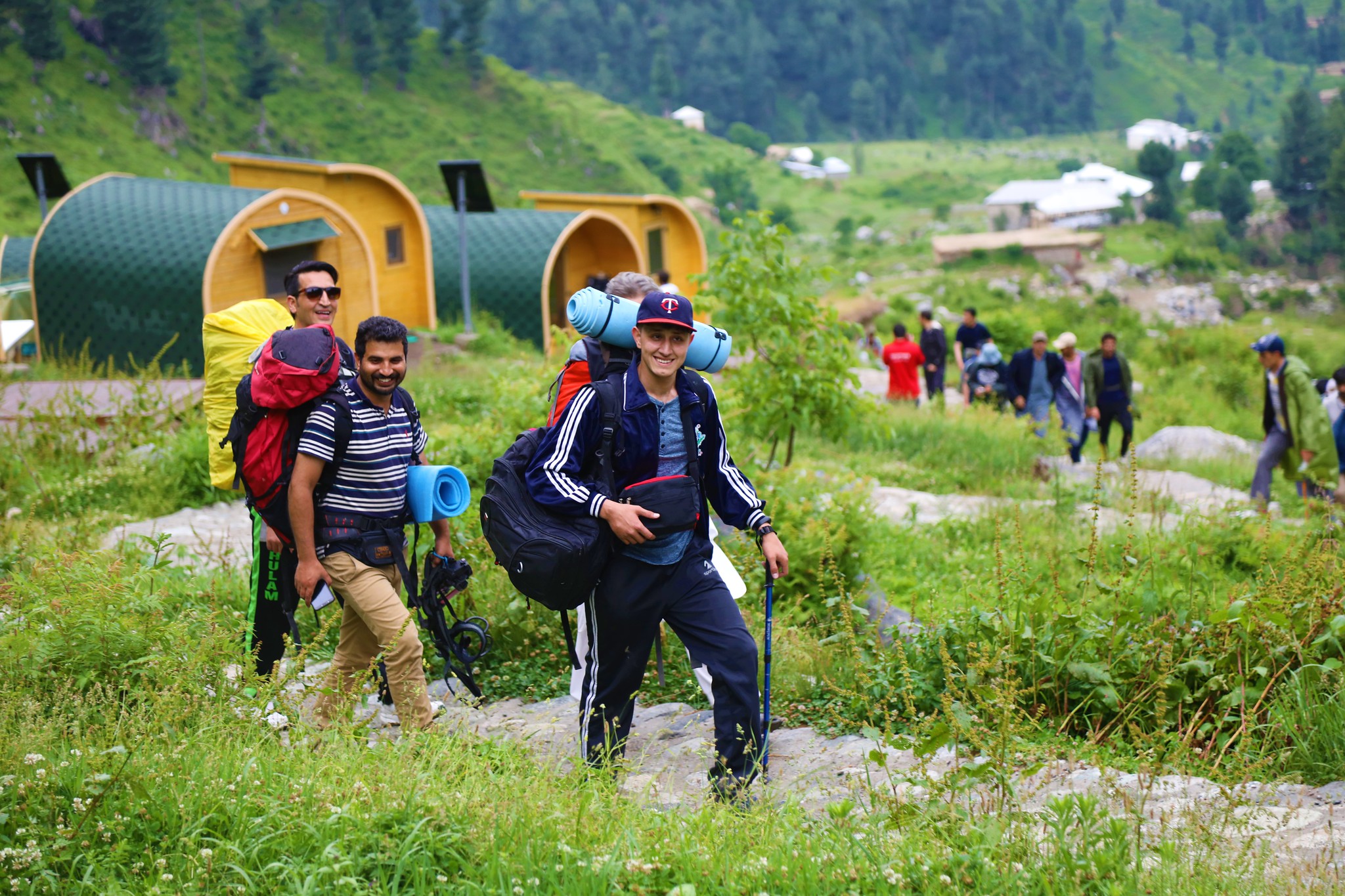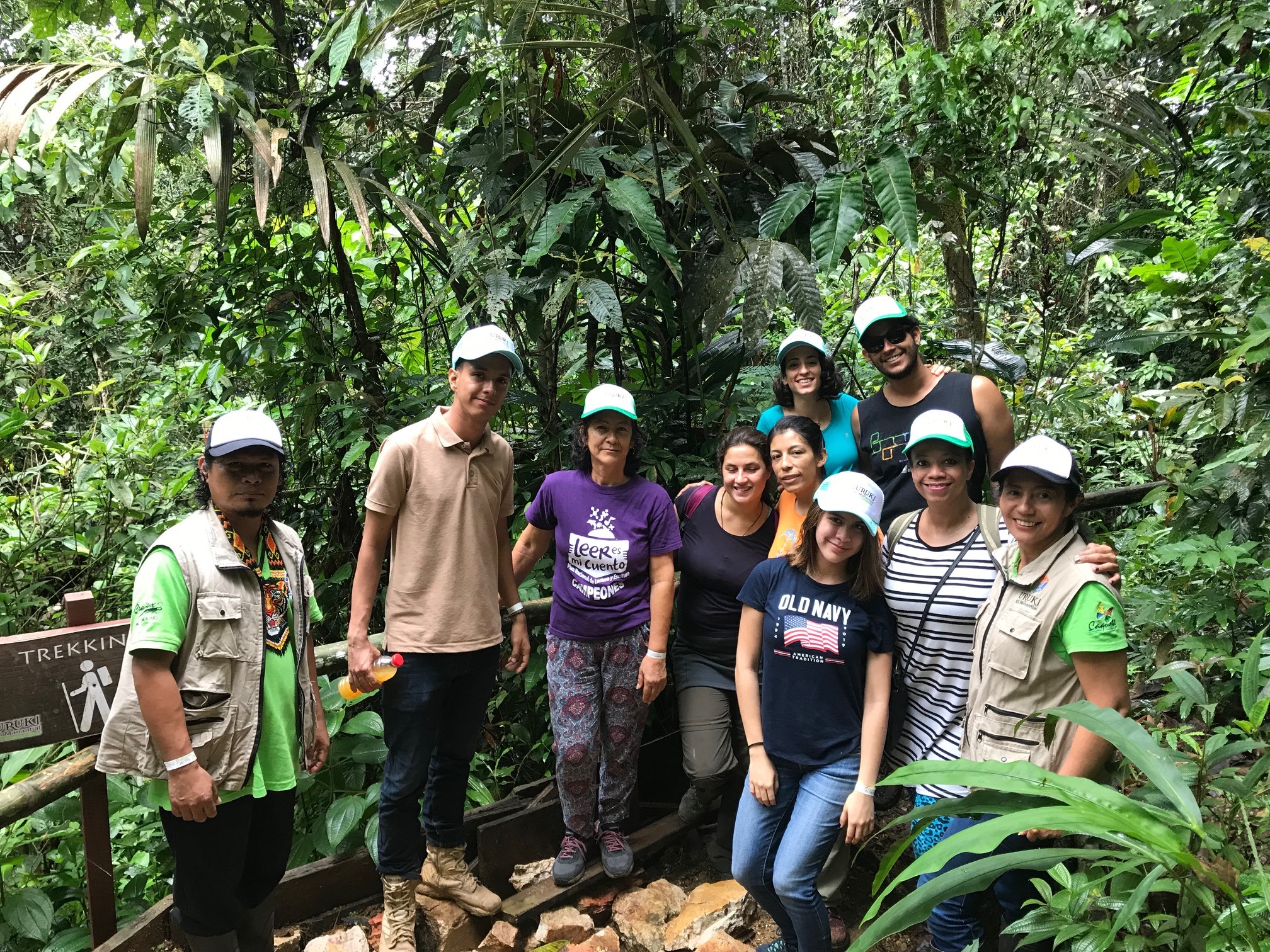Community ecotourism, an innovative approach to tourism, is making waves across the globe. By putting local communities at the helm of tourism initiatives, it not only provides economic opportunities but also fosters environmental conservation and cultural preservation.
Join us as we delve into the fascinating world of community ecotourism, exploring its principles, benefits, challenges, and best practices. We’ll showcase inspiring case studies and discuss future trends shaping this transformative movement.
Community Ecotourism Definition

Community ecotourism is a form of tourism that focuses on conserving the environment and supporting local communities. It involves responsible travel to natural areas, where visitors can learn about the local culture and environment while contributing to the sustainable development of the area.
Key principles of community ecotourism include:
- Minimizing environmental impact
- Supporting local communities
- Promoting cultural understanding
- Educating visitors about the environment
Examples of Successful Community Ecotourism Initiatives
There are many successful examples of community ecotourism initiatives around the world. One example is the Sian Ka’an Biosphere Reserve in Mexico, where local communities have worked together to develop a sustainable tourism industry that protects the area’s natural and cultural heritage.
Community ecotourism is a way to travel that supports local communities and protects the environment. It’s a great way to learn about different cultures and see the world while also making a positive impact. If you’re looking for a more sustainable way to travel, community ecotourism is a great option.
You can find out more about eco and sustainable tourism by clicking the link. Community ecotourism is a great way to travel and support local communities and the environment.
Another example is the Great Barrier Reef in Australia, where tourism operators have implemented strict environmental guidelines to minimize the impact of tourism on the reef.
Benefits of Community Ecotourism
Community ecotourism offers a wealth of advantages, extending beyond financial gains to encompass environmental preservation and social empowerment. It empowers local communities by actively involving them in tourism operations, enabling them to retain control over their resources and traditions while promoting sustainable practices that protect the environment for future generations.
Economic Benefits
Community ecotourism generates revenue for local communities, providing alternative sources of income and reducing dependency on traditional livelihoods like fishing or farming. It creates jobs in tourism-related sectors, such as guiding, hospitality, and crafts, boosting local economies and improving living standards.
Environmental Benefits
Ecotourism encourages responsible tourism practices that minimize environmental impact. It promotes the conservation of natural resources, such as forests, wildlife, and water bodies, through sustainable land management and responsible waste disposal. By educating visitors about the importance of environmental protection, ecotourism fosters a sense of stewardship and encourages travelers to adopt eco-friendly practices.
Social Benefits
Community ecotourism empowers local communities by giving them a voice in tourism development and decision-making. It promotes cultural exchange, fostering understanding and appreciation between visitors and local people. Ecotourism also contributes to the preservation of traditional customs, arts, and crafts, safeguarding cultural heritage for future generations.
Challenges of Community Ecotourism

Implementing community ecotourism comes with its fair share of hurdles. Funding, capacity building, and community engagement pose significant challenges that can hinder the long-term success of these initiatives.
One of the primary challenges is securing adequate funding. Establishing and maintaining community ecotourism projects require substantial investments in infrastructure, training, and marketing. Limited access to financial resources can restrict the development and sustainability of these initiatives.
Capacity Building
Capacity building is another crucial challenge. Community members may lack the necessary skills and knowledge to effectively manage and operate ecotourism ventures. This includes technical expertise in areas such as tourism management, marketing, and environmental conservation. Addressing these capacity gaps is essential for ensuring the long-term success of community ecotourism projects.
Community Engagement, Community ecotourism
Engaging the local community is paramount to the success of community ecotourism. However, gaining the support and active participation of all community members can be challenging. Some individuals may have concerns about the potential impacts of tourism on their culture, environment, or livelihoods.
Addressing these concerns and fostering a sense of ownership among community members is essential for ensuring the long-term sustainability of these initiatives.
Best Practices for Community Ecotourism
To establish and manage successful community ecotourism projects, adhering to best practices is essential. These guidelines ensure the involvement of local communities, promote responsible tourism, and protect the environment.
The following table Artikels key principles and best practices for community ecotourism:
| Principle | Best Practice |
|---|---|
| Community Involvement | – Establish partnerships with local communities and empower them in decision-making.
|
| Responsible Tourism | – Promote ethical and sustainable tourism practices.
|
| Environmental Conservation | – Protect and preserve natural ecosystems and biodiversity.
|
Case Studies of Community Ecotourism
Community ecotourism initiatives are thriving worldwide, offering unique experiences while empowering local communities. Here are a few successful case studies:
Proyecto Ecoturístico Las Brisas de San Miguel, Guatemala
Las Brisas is a community-run ecotourism project in the heart of the Maya Biosphere Reserve. It offers guided tours, hiking, and cultural immersion experiences, generating income for the local community while protecting the fragile ecosystem.
Utsukimi no Sato, Japan
Utsukimi no Sato is a community-based tourism initiative in the Japanese Alps. It involves local farmers, artisans, and residents who provide authentic cultural experiences, such as farming workshops, traditional crafts demonstrations, and guided nature walks.
Hike Crne Gore, Montenegro
Hike Crne Gore is a non-profit organization that promotes sustainable hiking in Montenegro’s mountainous regions. It works with local communities to establish and maintain hiking trails, offering guided tours and homestays that support the local economy.
Community ecotourism is a form of responsible travel that supports the local economy and protects the environment. While eco tourism in the world can encompass a wide range of activities, community ecotourism specifically focuses on benefiting the local community through job creation, education, and cultural exchange.
It’s a sustainable way to explore new destinations while making a positive impact on the world.
Wildlife Warriors, Namibia
Wildlife Warriors is a community-led conservation and ecotourism project in Namibia. It focuses on protecting endangered species, such as black rhinos, through anti-poaching patrols and ecotourism activities, such as wildlife tracking and guided safaris.
Andean Ecotours, Peru
Andean Ecotours is a community-based tourism enterprise in the Peruvian Andes. It offers trekking, cultural immersion, and wildlife viewing experiences that benefit local communities and promote sustainable practices, such as waste management and reforestation.
Future Trends in Community Ecotourism
Community ecotourism is poised for significant growth in the coming years, driven by emerging trends and future opportunities. Technology, sustainability, and community empowerment will continue to shape its evolution, transforming the way we experience and protect natural and cultural heritage.
As the demand for authentic and immersive travel experiences grows, community ecotourism will become increasingly popular. This trend will be fueled by the desire for travelers to connect with local communities, learn about their traditions, and contribute to their well-being.
Technology
Technology will play a crucial role in the future of community ecotourism. Online platforms will make it easier for travelers to discover and book community-based experiences. Mobile apps will provide real-time information about local attractions, tours, and events. Virtual reality and augmented reality will enhance the visitor experience, allowing them to explore destinations remotely and learn about their history and culture.
Sustainability
Sustainability will remain a key priority for community ecotourism. Communities will continue to develop innovative ways to minimize their environmental impact while maximizing the benefits of tourism. This will include using renewable energy sources, reducing waste, and protecting natural resources.
Sustainable tourism practices will help to preserve the delicate ecosystems that support community ecotourism.
Community Empowerment
Community empowerment will be essential for the long-term success of community ecotourism. Communities will need to have a strong voice in the planning and management of tourism activities. This will ensure that tourism benefits the entire community and that local values and traditions are respected.
Ultimate Conclusion: Community Ecotourism

Community ecotourism is not just a buzzword; it’s a powerful tool for sustainable development. By empowering local communities, protecting biodiversity, and promoting cultural heritage, it creates a virtuous cycle that benefits both visitors and host communities alike. As we embrace the future of tourism, let’s continue to support and invest in community ecotourism initiatives, ensuring a brighter and more sustainable path forward.
FAQ Overview
What is the key principle of community ecotourism?
Community involvement and empowerment, ensuring that local communities have a say in tourism development and reap its benefits.
How does community ecotourism benefit the environment?
By promoting responsible tourism practices, protecting biodiversity, and fostering environmental conservation.
What are some challenges faced by community ecotourism initiatives?
Funding, capacity building, and ensuring long-term community engagement.
